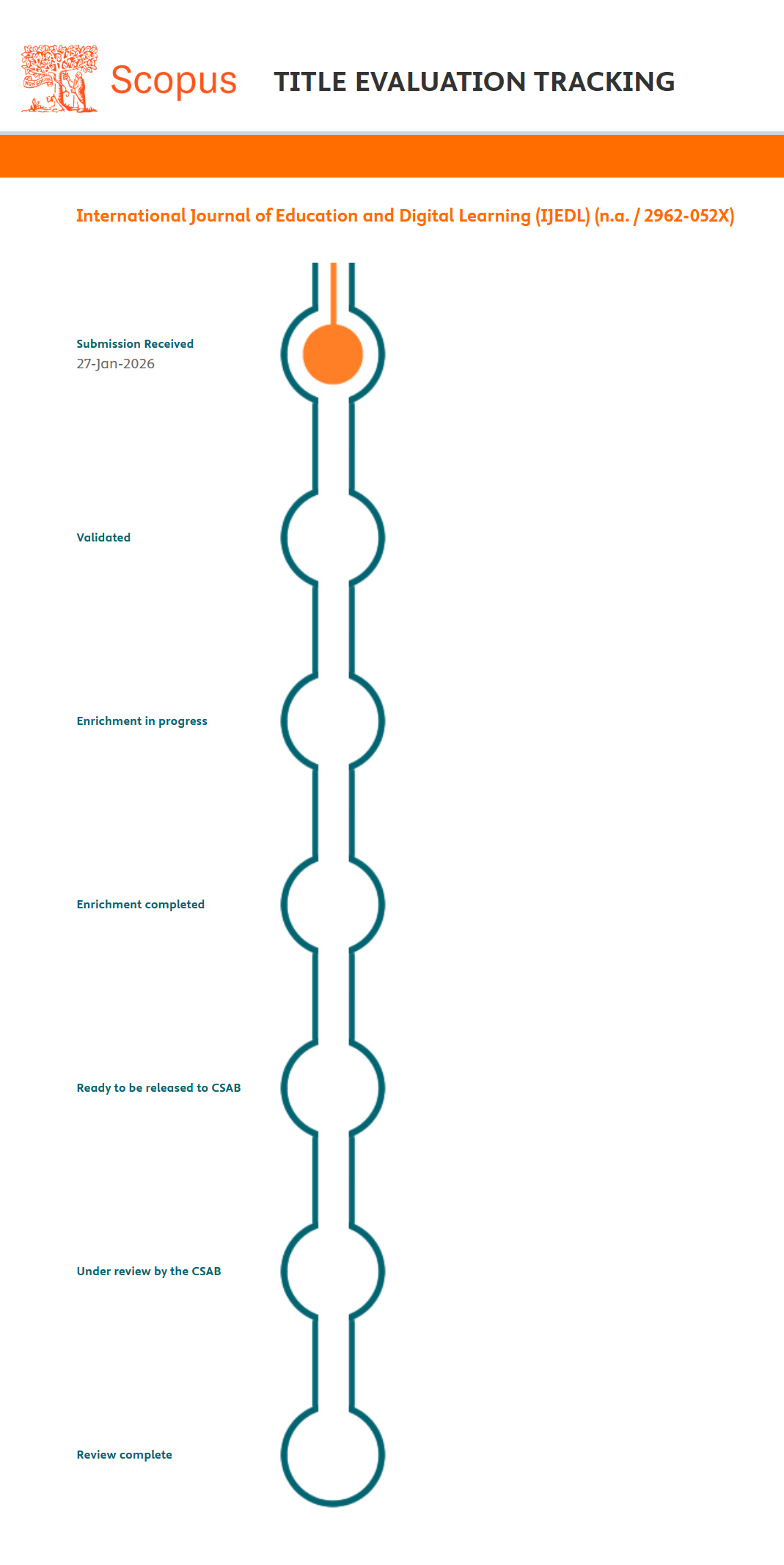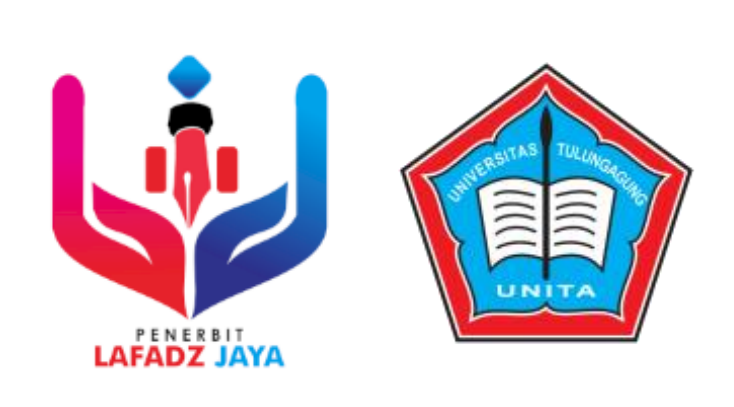Development of Google System (GS) Based Learning Management at a Leading Islamic Junior High School (Research at Ar-Rafi Drajat Junior High School, Bandung City)
DOI:
https://doi.org/10.47353/ijedl.v3i5.303Keywords:
Development of Google System, Based Learning Management, Leading Islamic Junior High School.Abstract
This research was conducted based on the author's curiosity to understand more deeply how the implementation of Google System (GS) can support effective learning management at a Leading Islamic Junior High School, especially in the digital era. The author is interested in exploring how GS technology can facilitate an innovative, interactive, and relevant learning process to today's educational needs, especially in the context of strengthening Islamic values. In addition, this study aims to answer the challenges in integrating digital technology with an active learning approach that focuses on developing 21st century skills, such as critical thinking, creativity, and collaboration. This study aims to develop an effective GS-based learning management model to be implemented at a Leading Islamic Junior High School, focusing on a case study at Ar-Rafi Drajat Junior High School, Bandung City. This study uses a qualitative approach with a case study method, which involves data collection through in-depth interviews, participant observation, and document analysis. The focus of this study is to explore the application of GS in supporting innovative, relevant, and effective learning processes in the digital era. This study found the GS-Based Islamic-Integrative Learning Management Model. It is called the GS-Based Islamic-Integrative Learning Management Model because learning integrates general science and Islamic science supported by GS (Google System) technology. This GS-Based Islamic-Integrative Learning Management Model is a model with an Integrative Approach that focuses not only on intellectual intelligence but also spiritual intelligence. A Learning Management Model that seeks to combine intellectual, social-emotional, and spiritual dimensions to achieve integrative education with the help of GS technology.
Downloads
References
Afifah, H. (2024). Implementasi Technology Acceptance Model (TAM) Pada Penerimaan Aplikasi Sistem Manajemen Pendidikan Di Lingkungan Madrasah. Jurnal Tahsinia, 5(9), 1353–1367.
Aidah, A. (2024). Pengembangan Sistem Informasi Manajemen Dalam Dunia Pendidikan. Jurnal Tahsinia, 5(6), 966–977.
Amma et al. (2021). Problematika Pembelajaran pendidikan Agama Islam Pada Peserta Didik. Edification Journal.
Arifin, A. (2024). The Relationship Between Classroom Environment, Teacher Professional Development, and Student Academic Performance in Secondary Education. International Education Trend Issues, 2(2), 151–159.
Arifudin, O. (2022). Analysis Of Learning Management In Early Childhood Education. Technology Management, 1(1), 16–26.
Arifudin, O. (2024). Trends in Teaching Research with Technology in Indonesia. Journal of Multidisciplinary Global, 1(2), 107–116.
Arifudin, O. (2025). Application Of Steam Learning Methods To Increase Student Creativity And Innovation. International Journal of Teaching and Learning (INJOTEL), 3(1), 97–108.
As-Shidqi, M. H. (2024). Integrasi Pendidikan Manajemen Dengan Prinsip-Prinsip Tasawuf. Al-Mawardi: Jurnal Manajemen Pendidikan Islam, 1(1), 83–95.
As-Shidqi, M. H. (2025). Menggali Potensi Transformasi Islam Dan Perencanaan Pendidikan. JUMADIL: Jurnal Manajemen Pendidikan Islam, 1(1), 1–15.
Djafri, N. (2024). Development Of Teacher Professionalism In General Education: Current Trends And Future Directions. International Journal of Teaching and Learning, 2(3), 745–758.
Farid, M. (2025). Mekanisme Pengambilan Keputusan Berbasis Sistem Informasi Manajemen Dalam Lembaga Pendidikan Islam. Jurnal Tahsinia, 6(1), 86–103.
Hoerudin, C. W. (2023). E-Learning as A Learning Media Innovation Islamic Education. QALAMUNA: Jurnal Pendidikan, Sosial, dan Agama, 15(1), 579–594.
Ifham Choli. (2020). Pendidikan Agama Islam Dan Industri 4.0. Tahdzib Al-Akhlak-PAI-FAI-UIA Jakarta.
Judijanto, L. (2025). Ethics And Security In Artificial Intelligence And Machine Learning: Current Perspectives In Computing. International Journal of Society Reviews (INJOSER), 3(2), 374–380.
Kartika, I. (2020). Implementasi Manajemen Berbasis Sekolah Dalam Meningkatkan Mutu Pendidikan Di Sekolah Menengah Atas. Jurnal Al-Amar, 1(2), 137–150.
Kartika, I. (2021). Upaya Mewujudkan Karakter Peserta Didik Pada Pembudayaan Kehidupan Beragama (Religious Culture) Di Sekolah. Jurnal Al-Amar, 2(2), 221–232.
Kartika, I. (2022). Manajemen Kurikulum Sebagai Upaya Meningkatkan Mutu Pembelajaran Pada Sekolah Menengah Atas. Jurnal Al-Amar, 3(1), 81–94.
Kathleen Scalise. (2016). Assessment of Learning in Digital Interactive Social Networks: A Learning Analytics Approach, Mark Wilson, Perman Gochyyev University of California, Berkeley, Online Learning. 20 (2).
Kurniawan, M. A. (2025). Lokakarya Pengembangan Pembelajaran Dan Asesmen Bagi Guru Sekolah Dasar. Jurnal Bakti Tahsinia, 3(1), 109–120.
Kusmawan, A. (2025). The Relationship Between Teacher Involvement in Curriculum Development and Student Learning Outcomes. International Journal of Educatio Elementaria and Psychologia, 2(1), 1–12.
Lahiya, A. (2025). Education Administration Reform: A Case Study On The Implementation Of The Merdeka Curriculum. INJOSEDU: International Journal of Social and Education, 2(2), 29–37.
Ningsih, I. W. (2024). Manajemen Pembelajaran Pendidikan Agama Islam Dalam Meningkatkan Prestasi Belajar Peserta Didik Di Sekolah Dasar. Jurnal Tahsinia, 5(1), 23–37.
Noviana, A. (2020). Effect of accountability, transparency of management amil zakat institutions and poverty alleviation of Muzakki trust. Journal of Advanced Research in Dynamical and Control Systems, 12(6), 199–208. https://doi.org/10.5373/JARDCS/V12I6/S20201022
Nuary, M. G. (2024). Teacher Strategies In Instilling Nationalist Values In The Millennial Generation In The Technological Era. International Journal of Teaching and Learning, 2(4), 954–966.
Nuryana, M. L. (2024). Implementasi Dan Transformasi Sistem Informasi Manajemen Di Era Digital. Jurnal Tahsinia, 5(9), 1325–1337.
Ramli, A. (2024). Analysis of the Influence of Organizational Commitment on Work Discipline of Public High School Teachers. Journal on Education, 6(2), 12927–12934.
Rifky, S. (2024). Professionalism Of Educators In Learning Development. International Journal of Teaching and Learning, 2(2), 579–588.
Rismawati, R. (2024). Peran Sistem Informasi Dalam Meningkatkan Mutu Layanan Pendidikan. Jurnal Tahsinia, 5(7), 1099–1122.
Rohimah, R. B. (2024). Madrasah’s Contribution To The Empowerment Of The Village Community In Indonesia. International Journal of Teaching and Learning, 2(4), 1088–1101.
Romdoniyah, F. F. (2024). Implementasi Kebijakan Education Mangement Information System (EMIS) Di Seksi PD. Pontren Pada Kemenag Kota Bandung. Jurnal Tahsinia, 5(6), 953–965.
Sappaile, B. I. (2024). The Role of Artificial Intelligence in the Development of Digital Era Educational Progress. Journal of Artificial Intelligence and Development, 3(1), 1–8.
Sanulita, H. (2024). Analysis Of The Effectiveness Of Audio Visual Learning Media Based On Macromedia Flash Usage On School Program Of Increasing Student Learning Motivation. Journal on Education, 6(2), 12641–12650.
Suherman. (2020). Industri 4.0 VS Society 5.0. Purwokerto: Pena Persada.
Supriani, Y. (2024). Fasilitasi Kebutuhan Belajar Dan Berbagi Praktik Baik Pengawas Sekolah Ke Kepala Sekolah. Jurnal Bakti Tahsinia, 2(1), 75–85.
Terry, G. (2010). Dasar-dasar Manajemen. Jakarta: Bumi Aksara.
Zulfa, A. A. (2025). Peran Sistem Informasi Akademik Berbasis Web Dalam Upaya Meningkatkan Efektivitas Dan Efisiensi Pengelolaan Akademik Di Perguruan Tinggi. Jurnal Tahsinia, 6(1), 115–134.
Downloads
Published
How to Cite
Issue
Section
License
Copyright (c) 2025 Hendri Juhana, Badrudin, Mohamad Erihadiana, Waehudin

This work is licensed under a Creative Commons Attribution-ShareAlike 4.0 International License.












